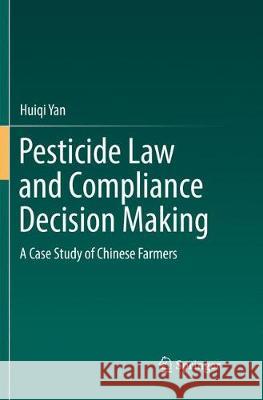Pesticide Law and Compliance Decision Making: A Case Study of Chinese Farmers » książka
topmenu
Pesticide Law and Compliance Decision Making: A Case Study of Chinese Farmers
ISBN-13: 9789811099977 / Angielski / Miękka / 2018 / 262 str.
Pesticide Law and Compliance Decision Making: A Case Study of Chinese Farmers
ISBN-13: 9789811099977 / Angielski / Miękka / 2018 / 262 str.
cena 402,53
(netto: 383,36 VAT: 5%)
Najniższa cena z 30 dni: 385,52
(netto: 383,36 VAT: 5%)
Najniższa cena z 30 dni: 385,52
Termin realizacji zamówienia:
ok. 22 dni roboczych
Bez gwarancji dostawy przed świętami
ok. 22 dni roboczych
Bez gwarancji dostawy przed świętami
Darmowa dostawa!
Kategorie:
Kategorie BISAC:
Wydawca:
Springer
Język:
Angielski
ISBN-13:
9789811099977
Rok wydania:
2018
Wydanie:
Softcover Repri
Ilość stron:
262
Oprawa:
Miękka
Wolumenów:
01











